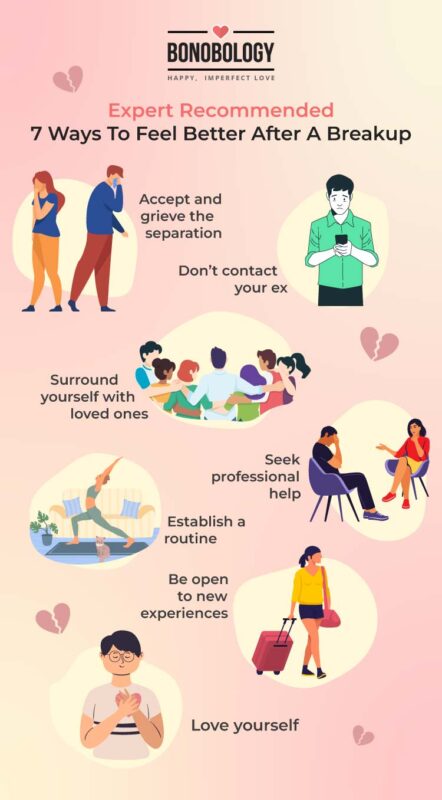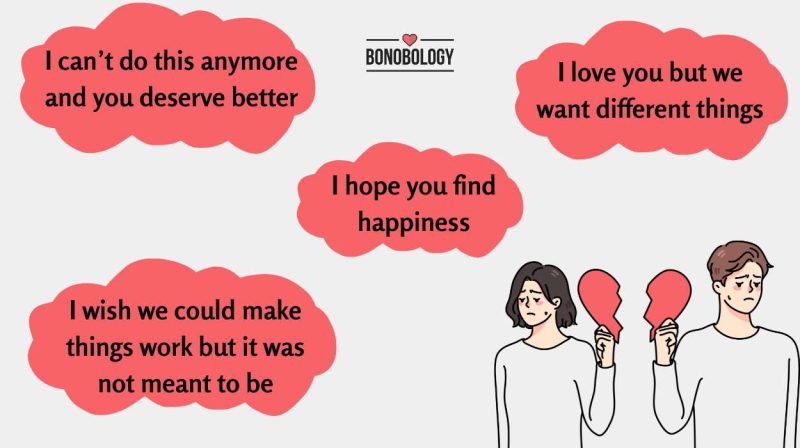
Understanding the Emotions of a Breakup
Dealing with Grief and Loss
Experiencing a breakup often triggers profound feelings of grief and loss. It’s like mourning the end of a relationship that once brought joy and companionship. Individuals may find themselves reminiscing about shared moments, which can heighten feelings of sadness.
Here are some coping strategies:
- Allow Yourself to Grieve: Give yourself permission to feel sad and acknowledge your loss.
- Express Your Feelings: Journaling or talking to friends can help process emotions.
- Create a Ritual: Consider holding a small ceremony to say goodbye to the relationship.
Managing Anger and Resentment
Anger and resentment can bubble to the surface post-breakup, often stemming from perceived injustices or hurtful actions. It’s crucial to acknowledge these feelings rather than bottling them up.
Here are effective ways to manage anger:
- Identify Triggers: Recognize what specifically angers you about the breakup.
- Channel Your Energy: Physical activities such as sports or exercise can help release pent-up emotions.
- Seek Support: Talking to a therapist or joining a support group can provide necessary tools for healing.
Understanding these emotions is a vital step toward healing and moving forward.

Self-Care and Healing After a Breakup
Practicing Self-Compassion
After a breakup, it’s essential to practice self-compassion. This means treating yourself with kindness instead of criticism. Many people fall into the trap of self-blame or harsh judgments. It’s important to remind oneself that heartbreak is a universal experience.
Here’s how to embrace self-compassion:
- Acknowledge Your Feelings: Accept that it’s normal to feel hurt and lost.
- Affirm Yourself: Use positive affirmations daily to boost your self-esteem.
- Engage in Mindfulness: Simple meditation or breathing exercises can help you reconnect with the present moment.
Engaging in Positive Activities
Engaging in positive activities is vital for healing. Focusing on things that bring joy can uplift spirits and refocus energy.
Consider these uplifting activities:
- Pursue Hobbies: Whether it’s painting, gardening, or cooking, reconnect with what you love.
- Reconnect with Friends and Family: Spend quality time with loved ones who lift you up.
- Volunteer: Helping others can foster a sense of purpose and community.
Building a routine filled with positivity will accelerate healing and restore your well-being.

Communication and Closure
Effective Communication Post-Breakup
Once the breakup dust settles, effective communication becomes crucial for both parties. Clear dialogues can minimize misunderstandings and ease lingering tensions. While it may be tempting to avoid all contact, structured conversations can provide clarity.
Here are some tips for effective post-breakup communication:
- Set Boundaries: Clearly define what type of communication is acceptable moving forward.
- Be Honest: Share your feelings truthfully but kindly to foster mutual understanding.
- Listen Actively: Allow your ex to express their feelings without interruptions; this can promote healing.
Seeking Closure for Emotional Well-Being
Finding closure is an essential step toward emotional recovery. It often involves understanding the reasons behind the breakup and acknowledging the lessons learned.
Consider these methods to seek closure:
- Reflect on the Relationship: Journaling your thoughts can help untangle complex emotions.
- Have a Final Conversation: If both parties agree, a final discussion can help provide understanding.
- Create a Ritual: This could be writing a letter to your ex (even if you don’t send it) to articulate unresolved feelings.
Addressing these aspects leads to a more peaceful mindset and paves the way for healthier future relationships.

Moving On and Building Resilience
Embracing Change and Growth
As the healing process progresses, it’s essential to embrace change and growth that follows a breakup. Change can be daunting, but it often brings valuable opportunities for personal development.
Here are ways to embrace this transformative phase:
- Revisit Goals: Reflect on personal aspirations you might have set aside during the relationship.
- Try New Experiences: Sign up for a class or hobby that excites you; it can be a refreshing shift.
- Adopt a Growth Mindset: View challenges as opportunities to learn rather than obstacles to overcome.
Building a Support System for Recovery
Building a robust support system is vital for emotional recovery. Friends and family can provide comfort, understanding, and guidance during tough times.
Here are steps to strengthen your support network:
- Reach Out: Don’t hesitate to communicate your feelings with trusted friends or family members.
- Join Support Groups: Meeting others who have experienced similar situations can foster an invaluable sense of community.
- Consider Professional Help: A therapist can offer insights and strategies tailored to your healing journey.
Fostering both change and connection lays a solid foundation for resilience, empowering a brighter future.
